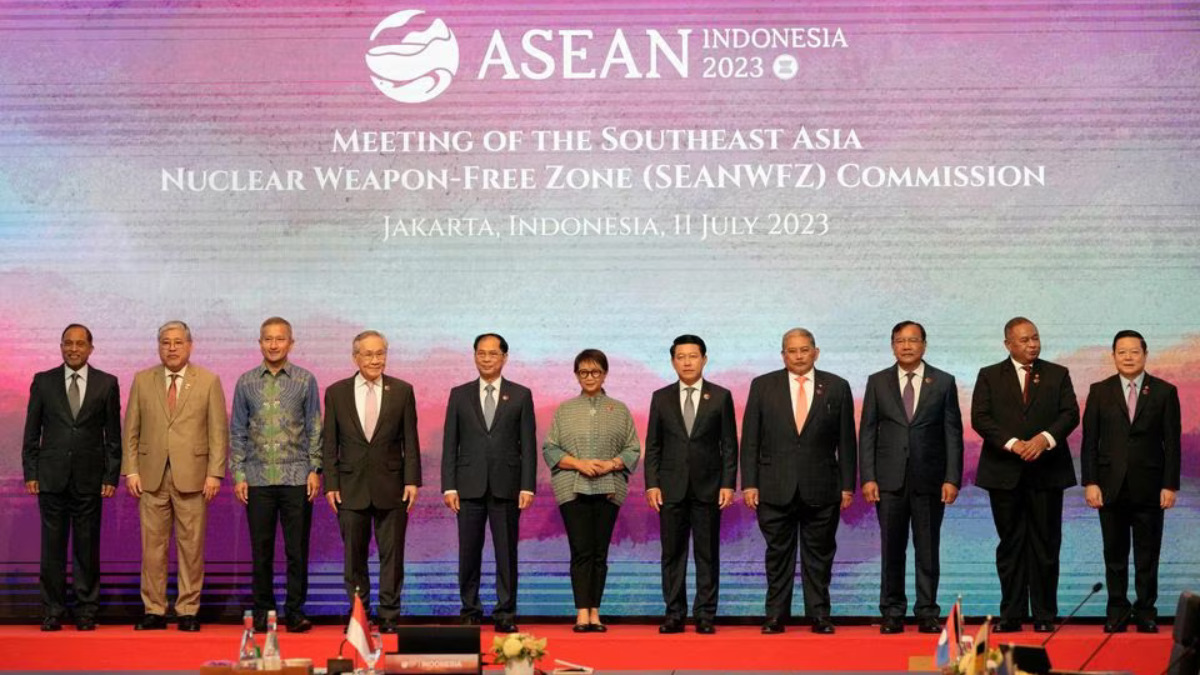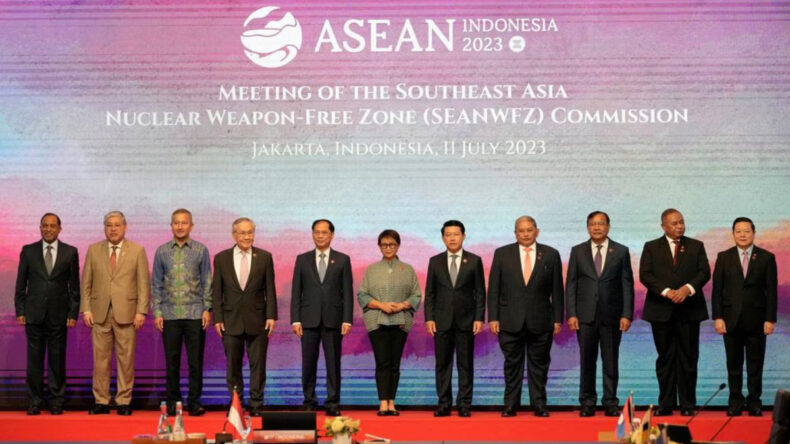On Tuesday, top diplomats from Southeast Asia will convene in Indonesia to address the ongoing political crisis in Myanmar and tensions in the South China Sea, where some ASEAN members and China have overlapping territorial claims. The meeting of foreign ministers from the Association of Southeast Asian Nations (ASEAN) is taking place amid growing concerns about the bloc’s credibility and unity in tackling the most pressing challenges in the region.

One major issue is the lack of progress in implementing an Association of Southeast Asian Nations peace plan for Myanmar, which was agreed upon with the country’s military leaders after they seized power in a coup in 2021. The plan calls for an immediate cessation of violence. However, meaningful steps towards achieving peace have been lacking.
According to a United Nations report released in June, the military crackdown on dissent in Myanmar has resulted in over 3,400 deaths and nearly 22,000 arrests. In light of this escalating violence, the United Nations High Commissioner for Human Rights, Volker Turk, recently called on the U.N. Security Council to refer the situation to the International Criminal Court. Additionally, Turk urged countries to halt the supply of weapons to the junta.
Although Myanmar’s junta leaders have been barred from attending high-level meetings like the one in Jakarta, Indonesia, as the current chair of Association of Southeast Asian Nations, has been actively engaging with both the junta and opposition groups behind the scenes, according to two sources familiar with the efforts. However, attempts to foster inclusive dialogue have been complicated by the conditions set forth by all parties involved, even for informal talks.
Indonesian Foreign Minister Retno Marsudi emphasized the need for a different approach, stating last week, “As long as the parties approach the situation with a zero-sum mindset, lasting peace will remain elusive.”
In addition to addressing the Myanmar crisis, Indonesia aims to expedite discussions on a long-pending code of conduct regarding the South China Sea during this week’s forum. The talks aim to advance the commitment made by Association of Southeast Asian Nations and China in 2002 to establish a set of regulations ensuring freedom of navigation and overflight in the strategically significant waterway.
Given that over $3 trillion worth of trade transits through the South China Sea annually and the presence of overlapping territorial claims between China and countries like the Philippines, Vietnam, Malaysia, and Brunei, tensions and confrontations have arisen.
ASEAN will also convene the East Asia Summit and the ASEAN Regional Forum later this week, with the participation of U.S. Secretary of State Antony Blinken and Russia’s Foreign Minister Sergei Lavrov.
ASEAN
ASEAN, which stands for the Association of Southeast Asian Nations, is a regional intergovernmental organization comprising ten member states in Southeast Asia. It was established on August 8, 1967, with the signing of the Association of Southeast Asian Nations Declaration (also known as the Bangkok Declaration). The founding members of ASEAN were Indonesia, Malaysia, Philippines, Singapore, and Thailand. Brunei joined in 1984, followed by Vietnam in 1995, Laos and Myanmar in 1997, and Cambodia in 1999.
The primary objectives of ASEAN are to promote regional peace and stability, enhance economic cooperation, and strengthen socio-cultural integration among its member states. The organization operates on the principles of mutual respect, non-interference in internal affairs, consensus-building, and equality among its members.
Over the years, ASEAN has expanded its scope of cooperation and established several important frameworks. These include the ASEAN Economic Community (AEC) to promote economic integration, the ASEAN Political-Security Community (APSC) to enhance regional security and political cooperation, and the ASEAN Socio-Cultural Community (ASCC) to foster social development and cultural exchange.
ASEAN has also engaged in dialogues and partnerships with external countries and organizations, including the ASEAN Plus Three (China, Japan, South Korea) and the East Asia Summit (ASEAN Plus Eight), which includes additional participants like the United States, Russia, Australia, and India.













